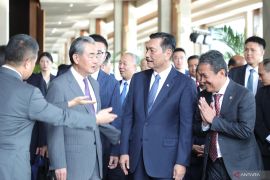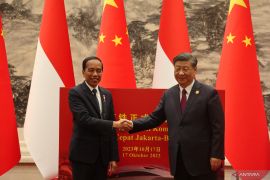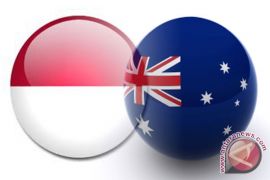Sharif stated that Indonesia has approved the WCPFC convention through the Presidential Decree No.16 2013 on the approval of the Highly Migratory Species Conservation and Management in the Western and Central Pacific Ocean. Furthermore, Indonesia has its WCPFC entry into force since Nov. 29, 2013, and WCPFC accepted the Indonesia Government Declaration stating that the Indonesia's WCPFC's convention zone only encompasses the Indonesia Exclusive Economic Zone (EEZ) that is adjacent and does not cover the waters of archipelago, territories, and Indonesian deep waters. "Adding into this new membership, Indonesia has now been a state member of three Regional Fishery Organization comprising Indian Ocean Tuna Commission (IOTC), Commission on Conservation of Southern Bluefin Tuna (CCSBT) and Western and Central Pacific Fisheries Commission (WCPFC)," said the Minister.
Sharif asserted that the Constitution No.45 2009 on the fishery obliges Indonesia to be the member of WCPFC. The Constitution's Article 10 section (2) states that the Government has to actively participate in the regional and international board/institution/organization within the framework of regional and international fishery management cooperation. The subsection (e) of the Constitution No.22 2009 explains that a country conducting the fishing activity on the high seas is obliged to be a member of the existing regional organization or to establish a regional organization. Indonesia is also obliged to be a WCPFC's member regarding to the Indonesia's tuna production contribution that reaches 30% of all the state members'. Indonesia is the world's highest tuna potency country. Its annual tuna production hits 613,575 tons with the value reaching Rp. 6.3 trillion. "Gifted with the splendid geographical blessings comprising of two large oceans (Pacific and Indian), making Indonesia the most important country for the global tuna production, both in terms of the resource and the marketing," Mr. Sutardjo explained.
By joining the WCPFC, Indonesia obtains a number qualitative benefits; the capacity building of the fish capture production business in the WCPFC's convention zone; the Indonesian tuna caught in the WCPFC zone is legal both in the regional and international markets; Indonesia has a voting rights in the decision making during the Commission meetings; and the fulfillment of the Indonesia's obligations in the framework of the implementation of UNCLOS 1982. Meanwhile, through the economic benefit window, Indonesia's fishery export will be seamless and increased to the export destination countries. "The economical benefit for Indonesia is expected to reach around US$ 35.5 million from 5889 tons of bigeye tuna, with the assumption of Rp. 60.000/kg," he explained.
Sustainable Fisheries
Sharif continued that the tuna management has currently been facing a number of challenges - the productivity reduction, the size shrinkage, and the fishing zone getting further into high seas. MMAF therefore initializes the sustainable fishery development. MMAF conducts the research on tuna population which comprises the tuna reproduction and genetics, the water temperature and the tuna swimming depth and the tuna mealtime, as well as the observation to the fish landing site on the port. "The research conducted by the Benoa Tuna Research Center is one of the MMAF's commitments to maintain the tuna resource sustainability in the Indonesian Ocean as well as to meet the world's demand," he conveyed.
In the Indonesian Fishery Management Zone (IFMZ), Sharif added, the exploitation status of albacore, yellow fin, bigeye and blue fin tuna is high with the status of fully exploited and even over exploited, with the skipjack tuna that has only has status of moderate. The cooperation of all parties, both local, national, and international is extremely necessary in order to save the tuna resource. "Tuna is a kind of fish whose management is not the responsibility of only one nation. Therefore, the national tuna management status has to be monitored and organized by the regional fishery management institutions that regulate the global tuna management," he concluded.
For more information, please contact:
Anang Noegroho
Head of Statistic and Data Center
The Ministry of Marine Affairs and Fisheries
+62-21-351-9070
Editor: PR Wire
Copyright © ANTARA 2014











